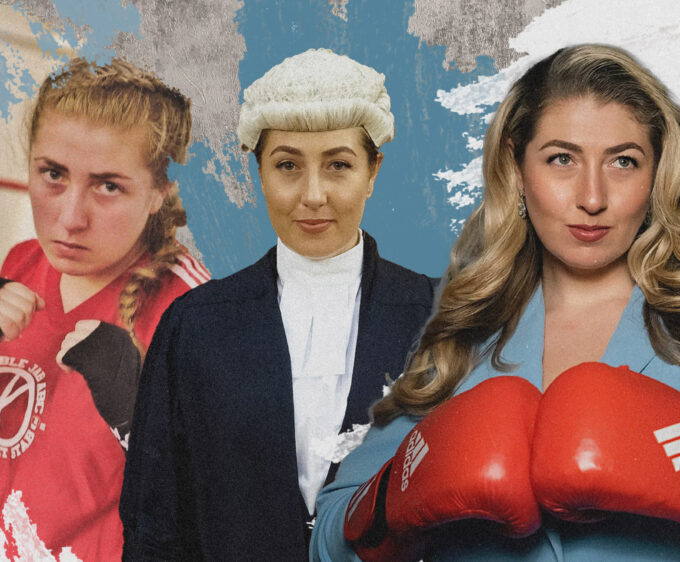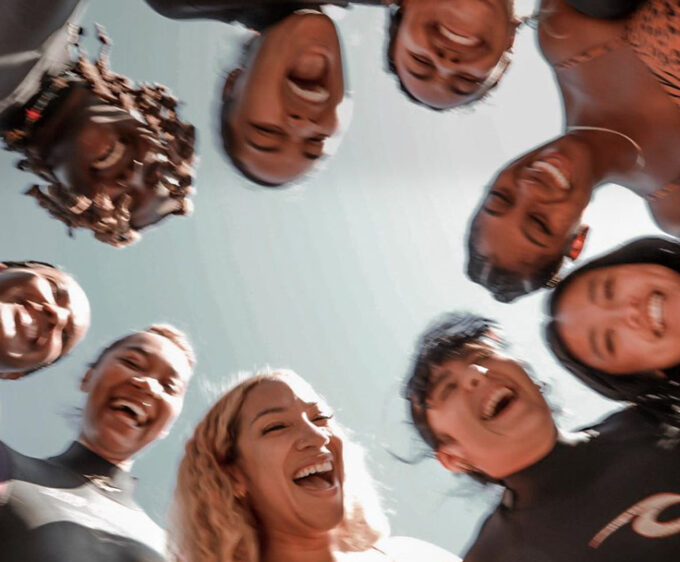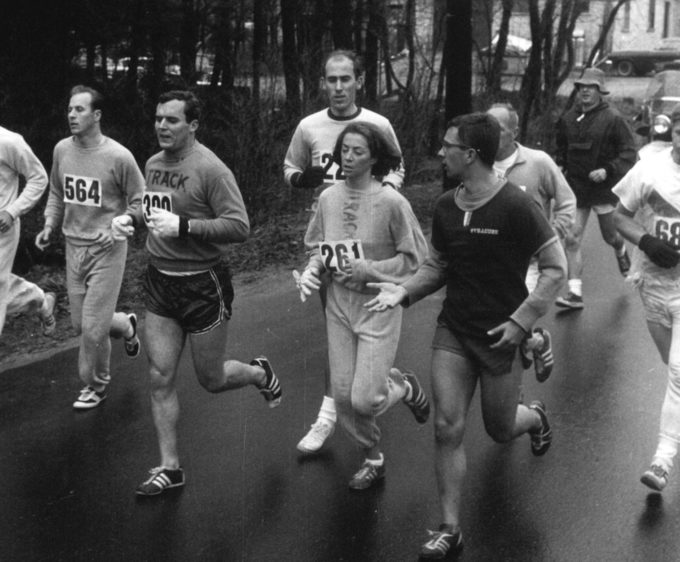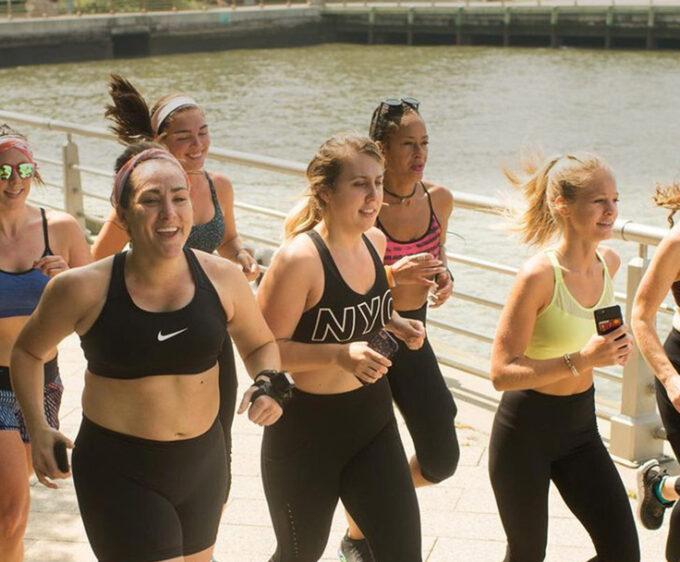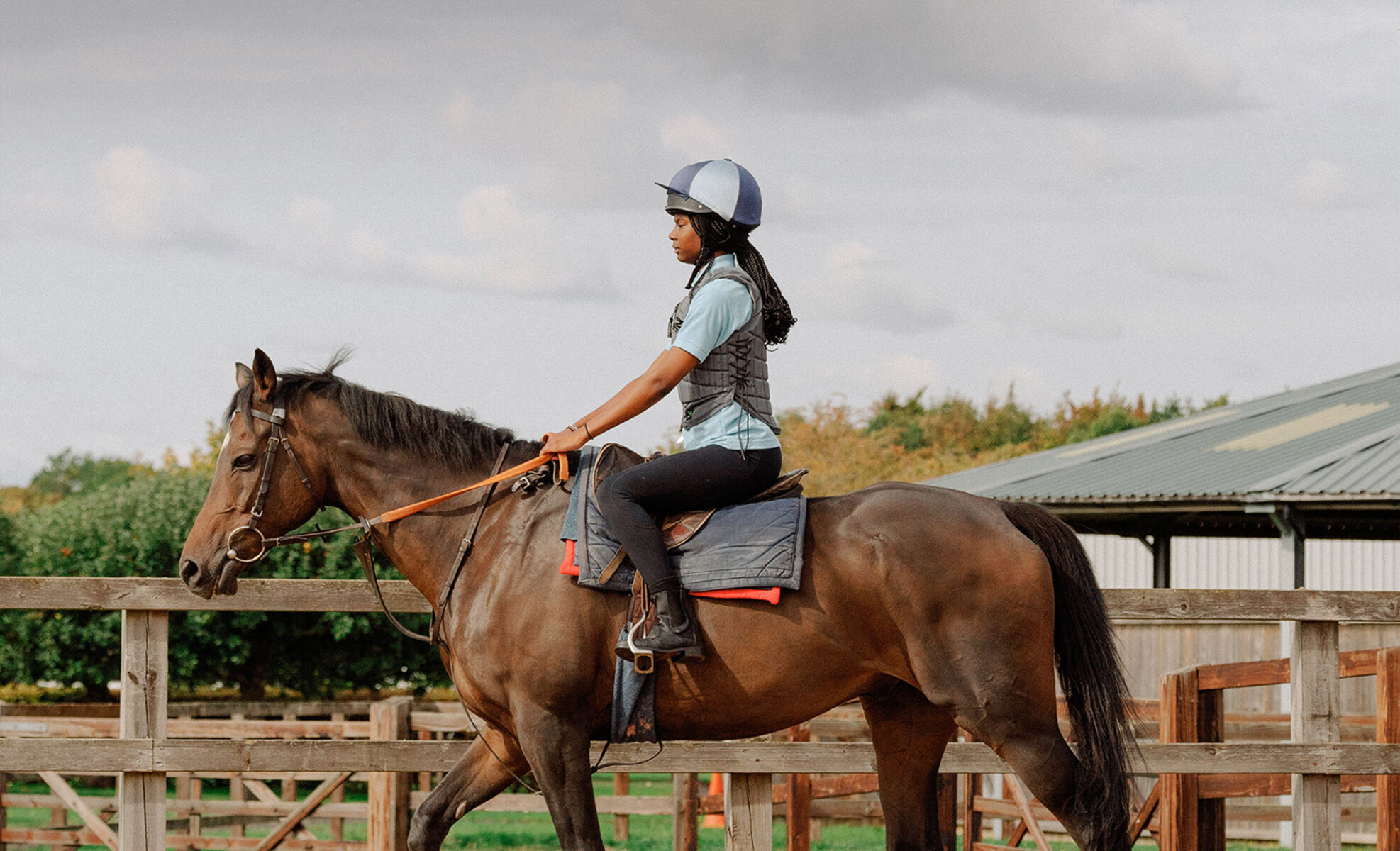
The Riders
The equestrian world can seem, and is, very white, so what is the industry doing to become more accessible and inclusive? We talk to Naomi Lawson, co-founder of Riding a Dream Academy, who is working hard to turn the tables
By Glorious
Photography by Alice Gough
After Khadijah Mellah made history in 2019 by becoming the first British Muslim woman to win a UK horse race, brothers Oli Bell, Phil Bell and Naomi Lawson (all of whom had worked on the documentary, Riding A Dream that had followed her story) wanted to create a lasting legacy for the sport. They decided to set up the Riding A Dream Academy, which would help other young people from diverse communities get involved in racing, thereby helping to make it more diverse and inclusive. Thanks to the Racing Foundation, the academy now runs four programmes that are all aimed at young people aged 14-18. Director and Co-Founder of the Academy Naomi Lawson tells us more.
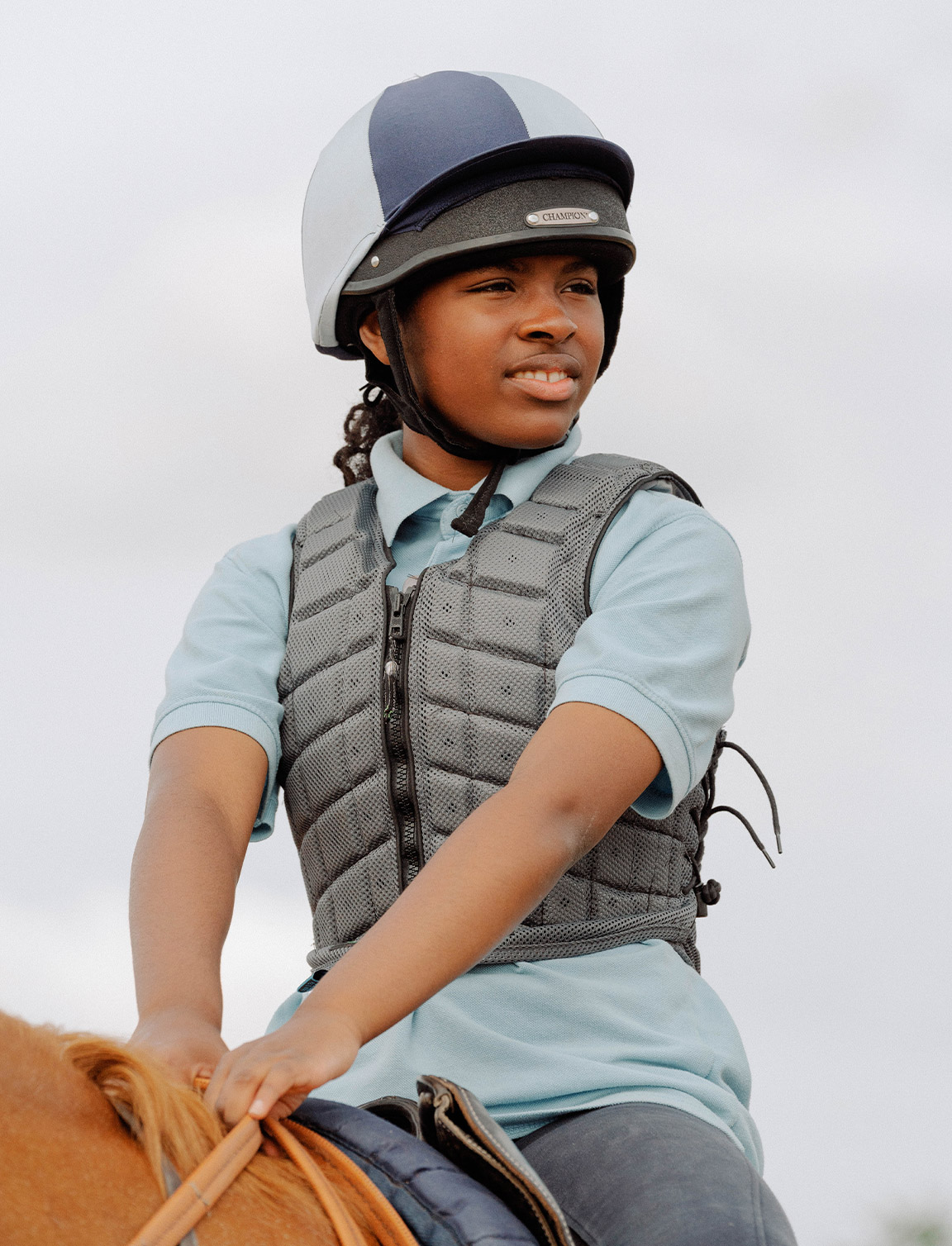
Glorious: What is the Khadijah Mellah Scholarship?
Naomi Lawson: The Khadijah Mellah Scholarship is our flagship programme for talented riders aged 14-18 from diverse communities, disadvantaged backgrounds and urban equestrian centres. It runs over the course of a year, starting with a week’s residential course at the British Racing School and then the students come back for a weekend once a month until the end of the year (11 weekends). Our first nine students graduated in July 2022 and one is already working in the industry in Newmarket. Two others have been accepted onto the industry’s foundation course, after which they’re guaranteed a job, and more will follow these students once they’re 16-years-old.
Glorious: Who has previously been awarded the scholarship and what was their story?
Naomi Lawson: Our students have come from all over the country. Whilst some have previously ridden at urban equestrian centres, others have applied independently having ridden a bit in the past. We’ve had some that were already racing fans when they joined us; others wanted to apply because they’d been inspired by Khadijah, or wanted to have the opportunity to ride racehorses and find out more about the sport.
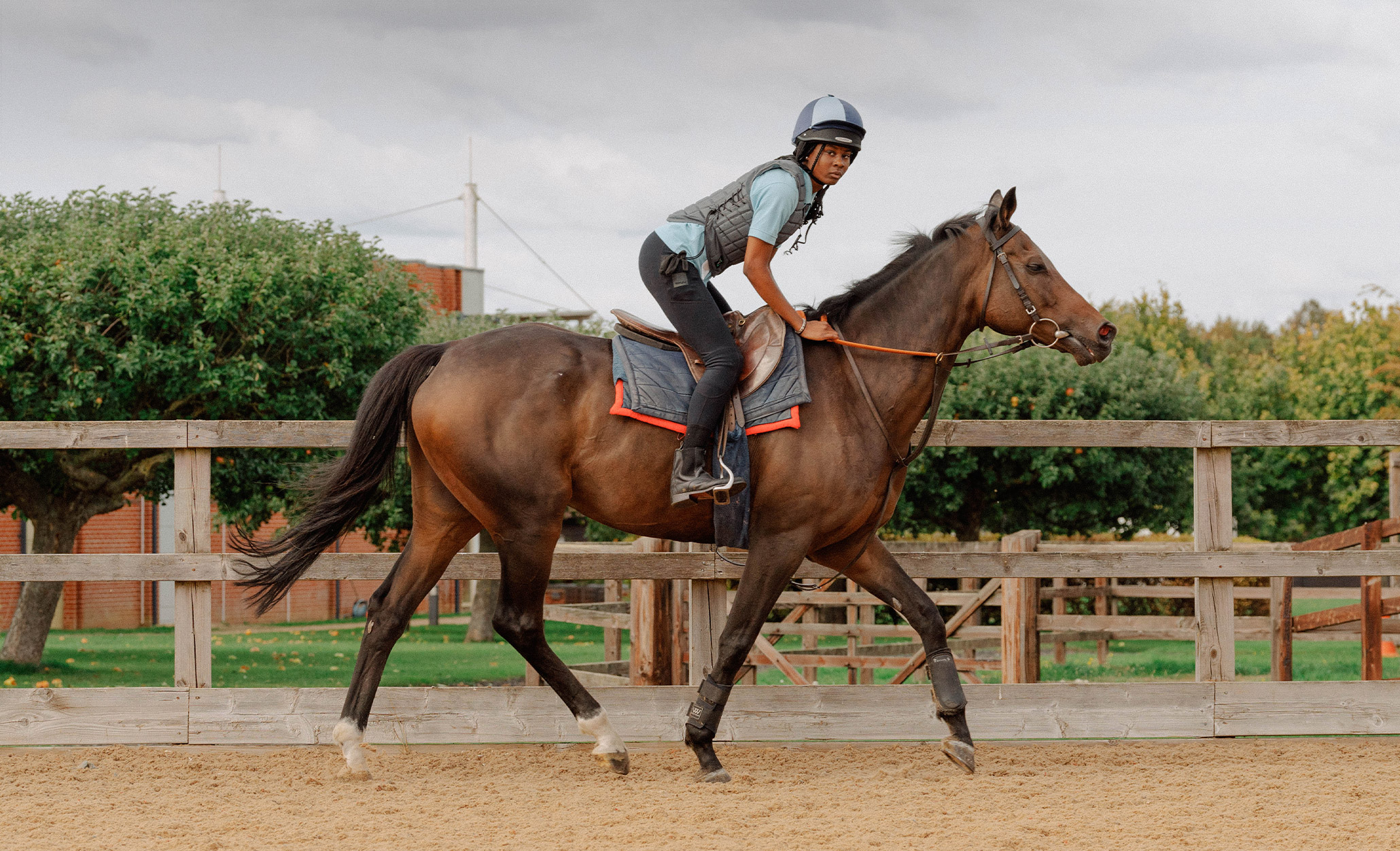
Glorious: Who funds the scholarship? Is it still the Racing Foundation with support from the Jockey Club and Champion Equestrian?
Naomi Lawson: The Racing Foundation very generously sponsors the Academy and we have been awarded three years’ funding by them to grow the Academy and the number of young people we can support. They also helped to fund the Riding A Dream documentary, so they have been with us from the beginning and none of this would have been possible without their incredible support. In our pilot year, the Jockey Club also sponsored one of our Scholarship students and continues to be supportive and involved – they very kindly hosted our first ever Regional Week at Epsom Downs Racecourse at the end of November. Champion Equestrian has provided all our riding kit since the Academy started. It’s been amazing because having a kit you can trust and that is your own is so important.
Glorious: Why do you think there is a lack of diversity in the equestrian world? What are the barriers to entry?
Naomi Lawson: There are so many. First of all, the equestrian world can seem, and is, very white. Collectively we have not been nearly pro-active enough about changing that, by making sure that we are inclusive with equitable access so that everyone feels welcome. Because of this, I believe horse racing has a lack of relevance to lots of audiences, which is why, when Khadijah won the Magnolia Cup it was such a huge moment. Young people contacted her afterwards through social media saying, “I didn’t think I could be part of that horsey world, but you’ve inspired me to follow my dreams.” You need those trailblazers to cut through. Additionally, it’s so expensive and there is so little access to horses, particularly in towns and cities. That’s why the work of urban equestrian centres, such as Ebony Horse Club in London and St James’s City Farm in Gloucester, to name just a couple, are so important and it’s vital that equestrian sports support them as the grassroots of our sports.
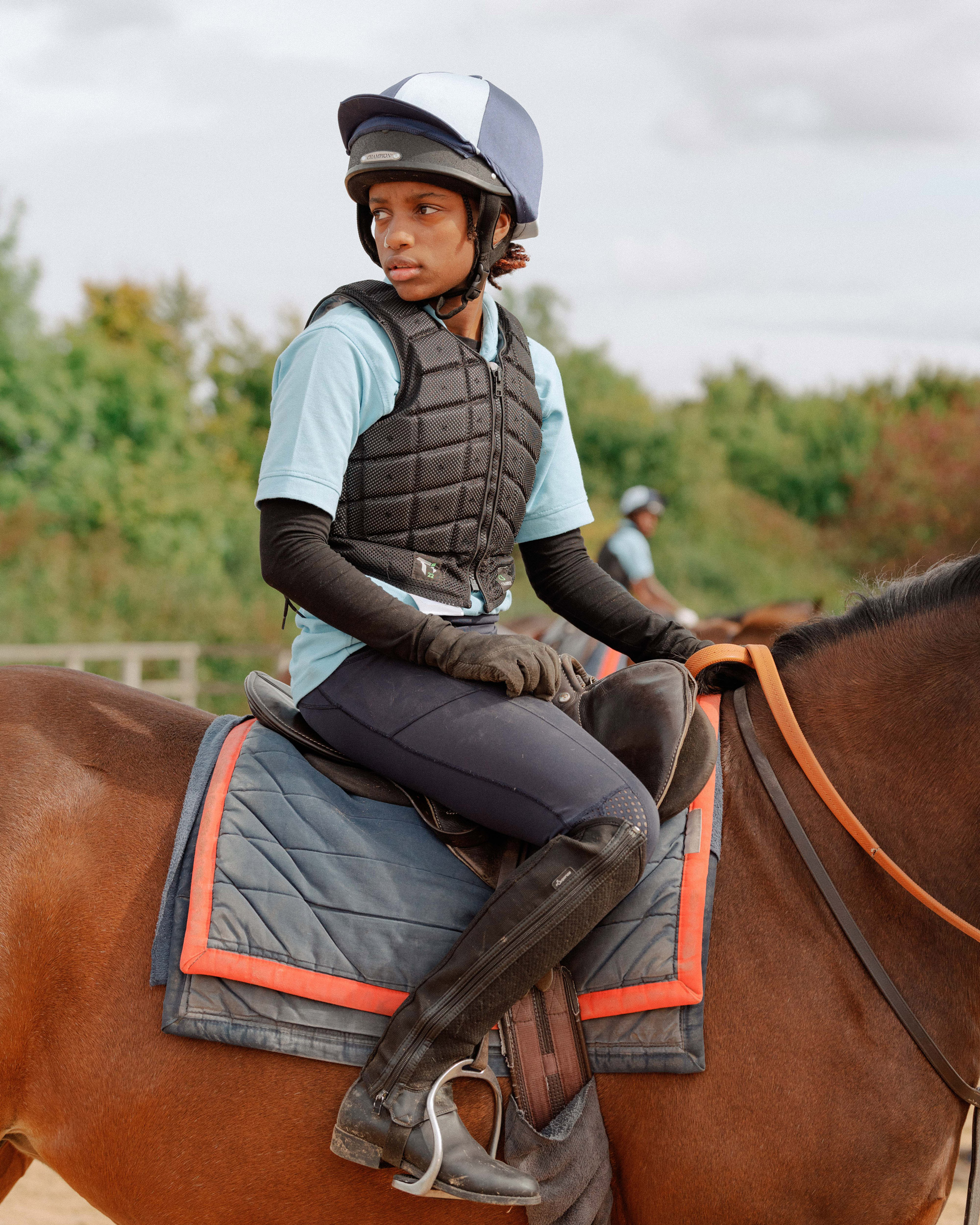
community
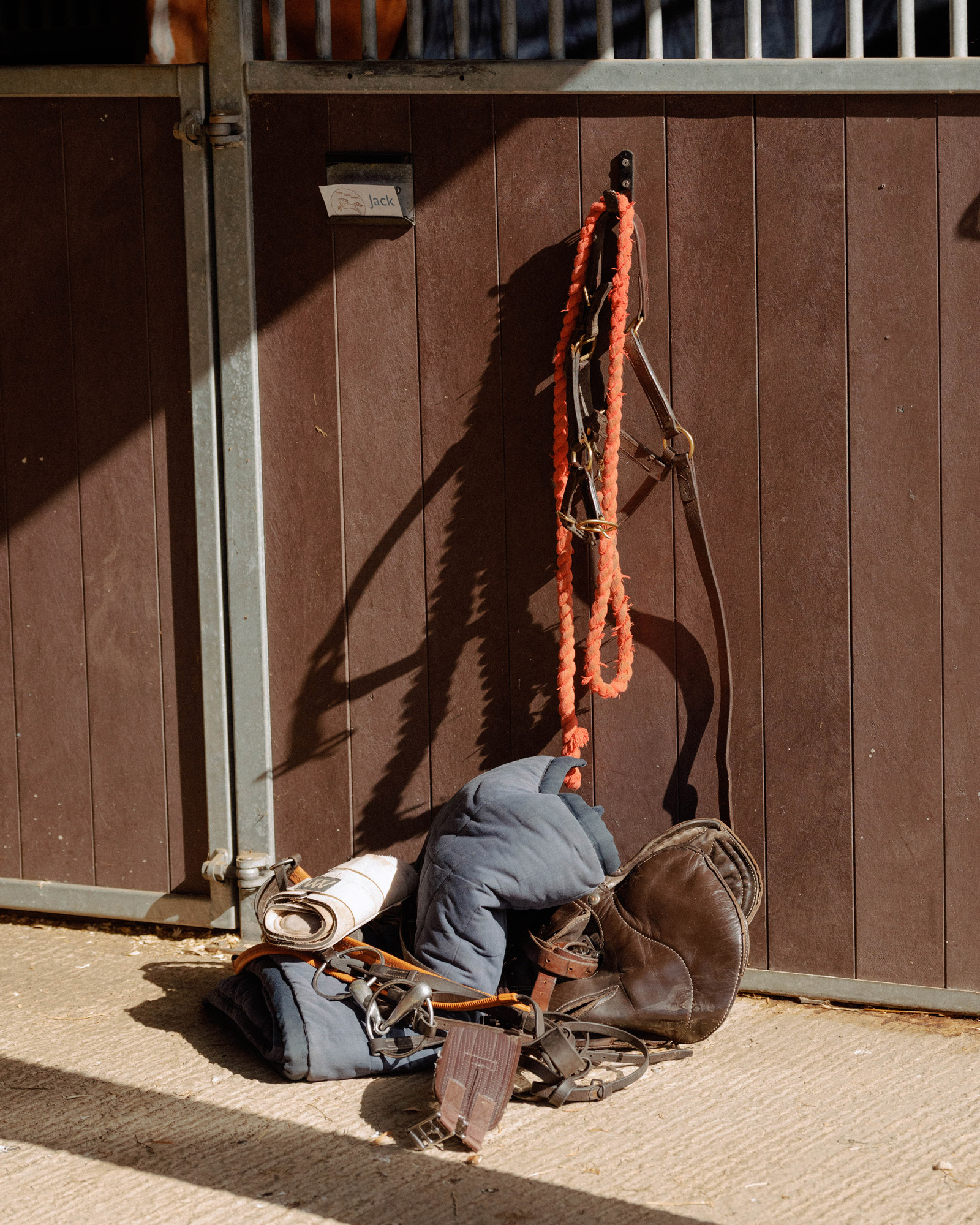
Glorious: When many think of horse racing, they think of male jockeys. Do you see the landscape of racing changing and being more inclusive?
Naomi Lawson: It is changing. When you think that Hollie Doyle came third in BBC Sports Personality of the Year in 2020, that’s a massive cut through. When Rachael Blackmore won the world’s most famous race, the Grand National as well as the Gold Cup in 2021, it became normal to see women succeeding in the sport. Added to that there is Hayley Turner on the flat, Bryony Frost over jumps and many more coming up through the ranks behind them. It’s a different case when it comes to people of colour though – only 2-3% of jockeys are from a diverse ethnic background vs 14% of the population.
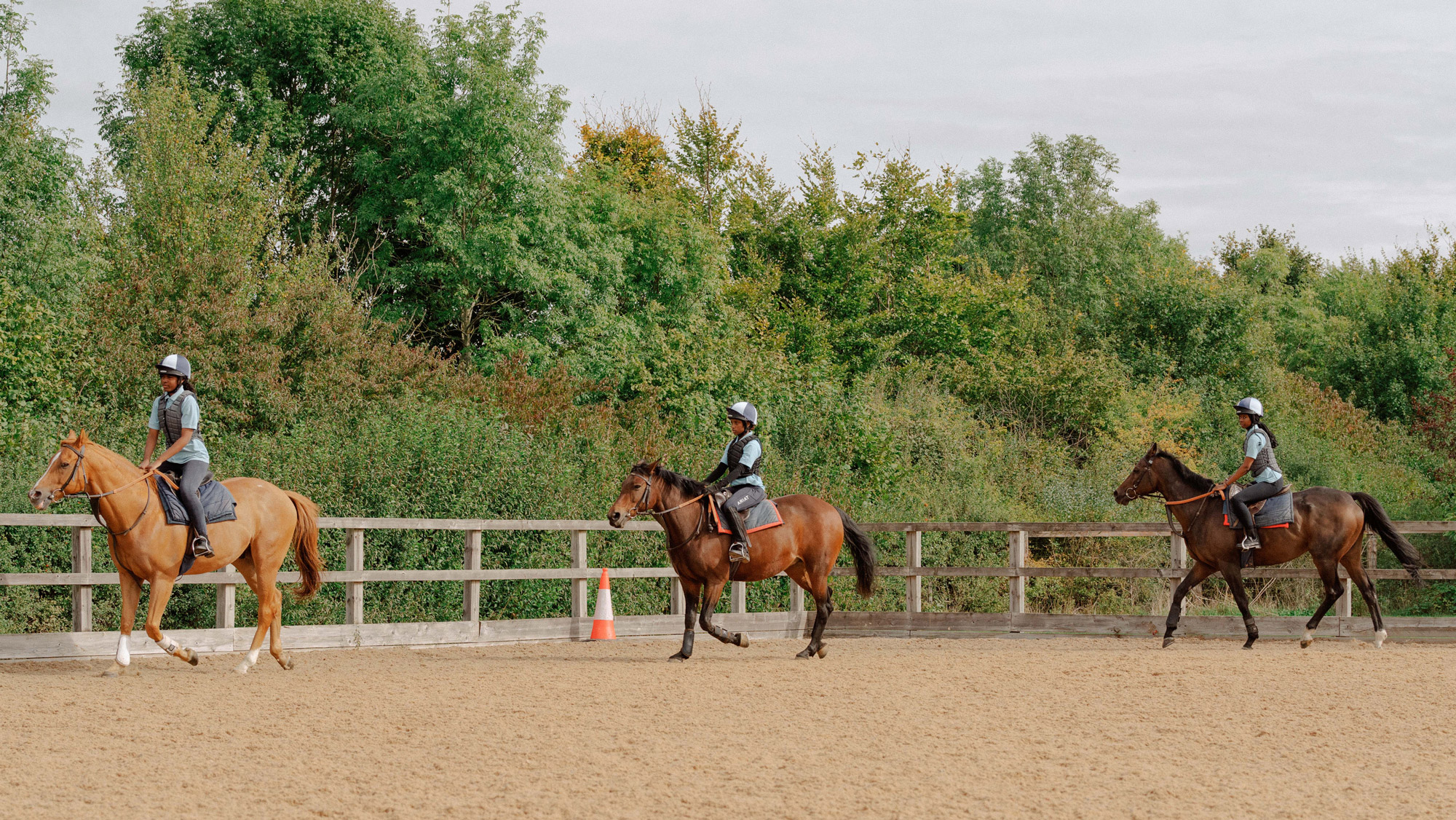
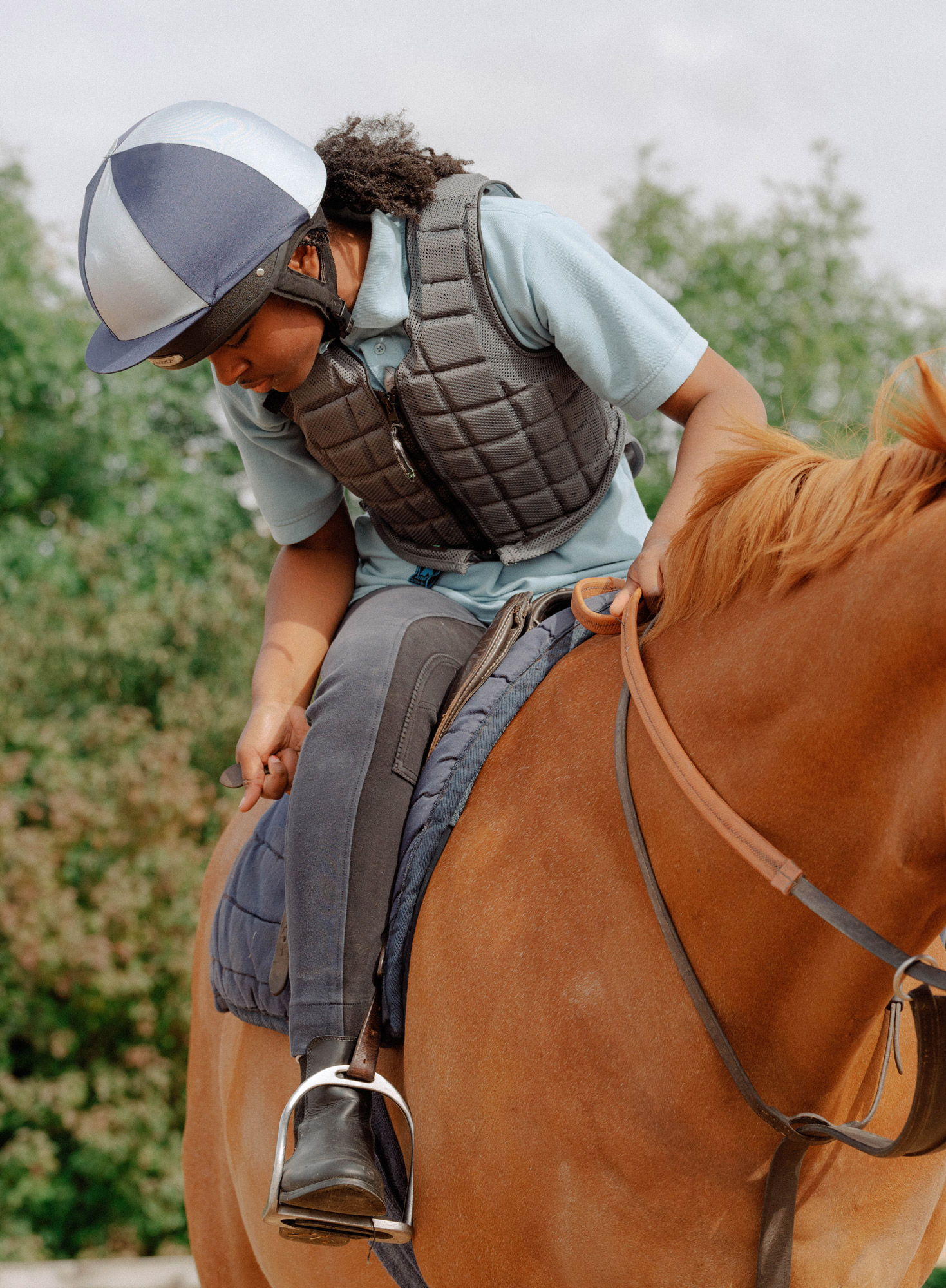
Glorious: What do you think needs to change in the equestrian world?
Naomi Lawson: There has to be tangible action, even if it is imperfect and messy. People are scared to get things wrong and hide behind things like diversity commitments, which are meaningless without being backed up with how you are actually making a difference. People need to be ambitious and have stretch plans in place which track the progress that is being made. You should also have people at the top of organisations who genuinely understand and buy into the importance of ED&I, are committed to making their organisations more diverse and who listen to the lived experiences of the people they are trying to engage with.
Glorious: How different is riding a racehorse to riding a standard riding school pony?
Naomi Lawson: It’s like going from driving a Nissan Micra to a Ferrari. It’s hard! Racehorses are such finely tuned athletes, they’re quirky, unpredictable and incredibly powerful and fast. It does take some getting used to and it definitely helps if you like a bit of adrenaline and speed. Obviously, we try to make the transition as smooth as possible, working with quieter horses and spending a lot of time on the simulators to hone and perfect that jockey pose. And there is nothing better than seeing the sense of achievement a student rightly feels when they progress to the round and straight canters on a racehorse – all that hard work and commitment has been worth it, it’s magical.
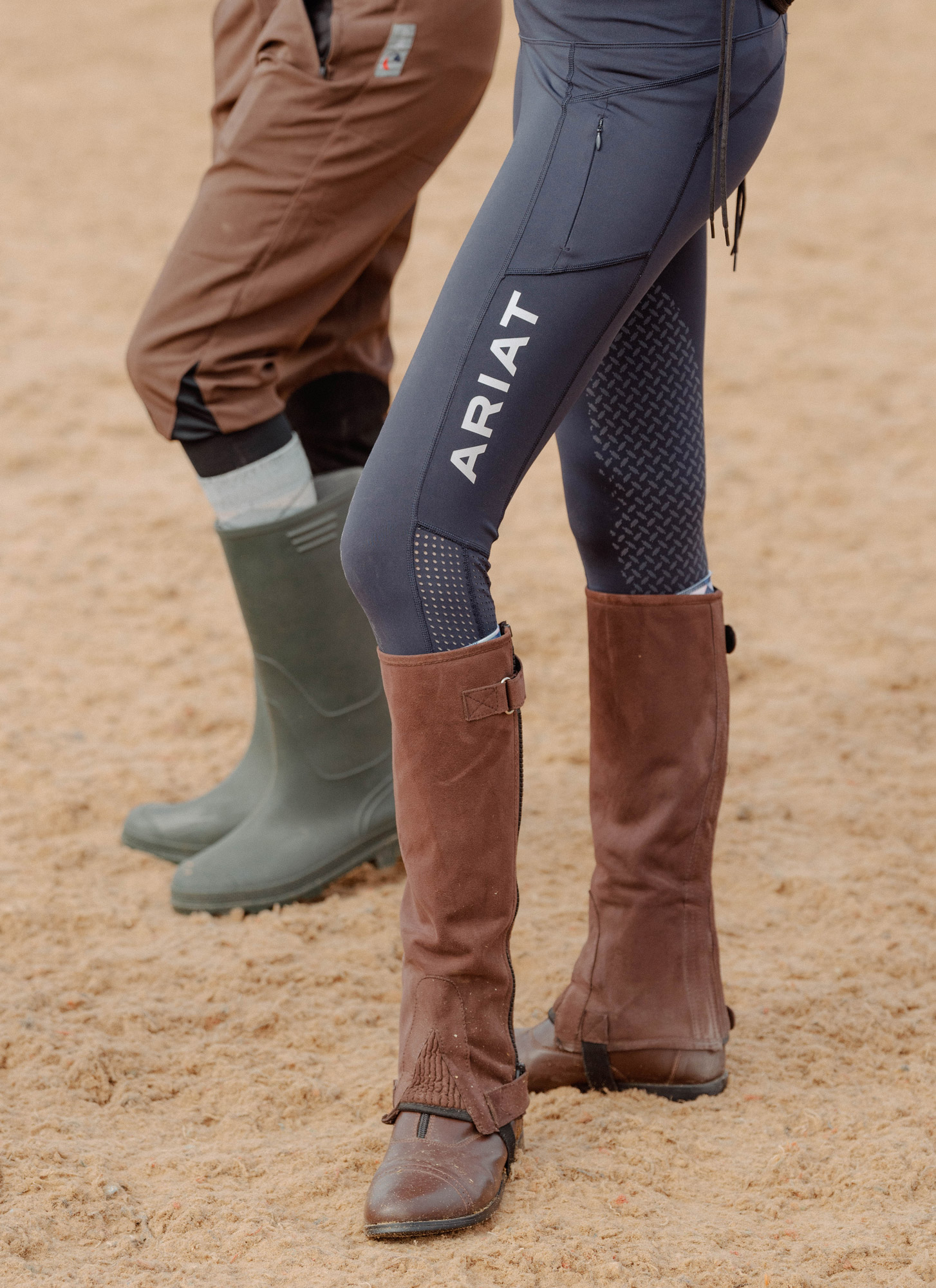
Glorious: Aside from riding, what skills can young people gain in the residential course?
Naomi Lawson: We are very focused on developing each young person’s confidence and resilience. For many, it’s the first time they have been away from home and not known anyone, so it can be quite daunting. However, the team at the British Racing School are brilliant at making everyone feel at home and supported, and our instructor team, led by Anna Sylvester, is phenomenal. If at the end of the week young people go away thinking, “I’ve proved to myself that I can do something difficult and I’m proud of what I’ve achieved” that’s a massive win. Outside of that, we try to make sure that everyone goes away with a rounded picture of the racing industry and the myriad of different opportunities waiting for them within the sport.
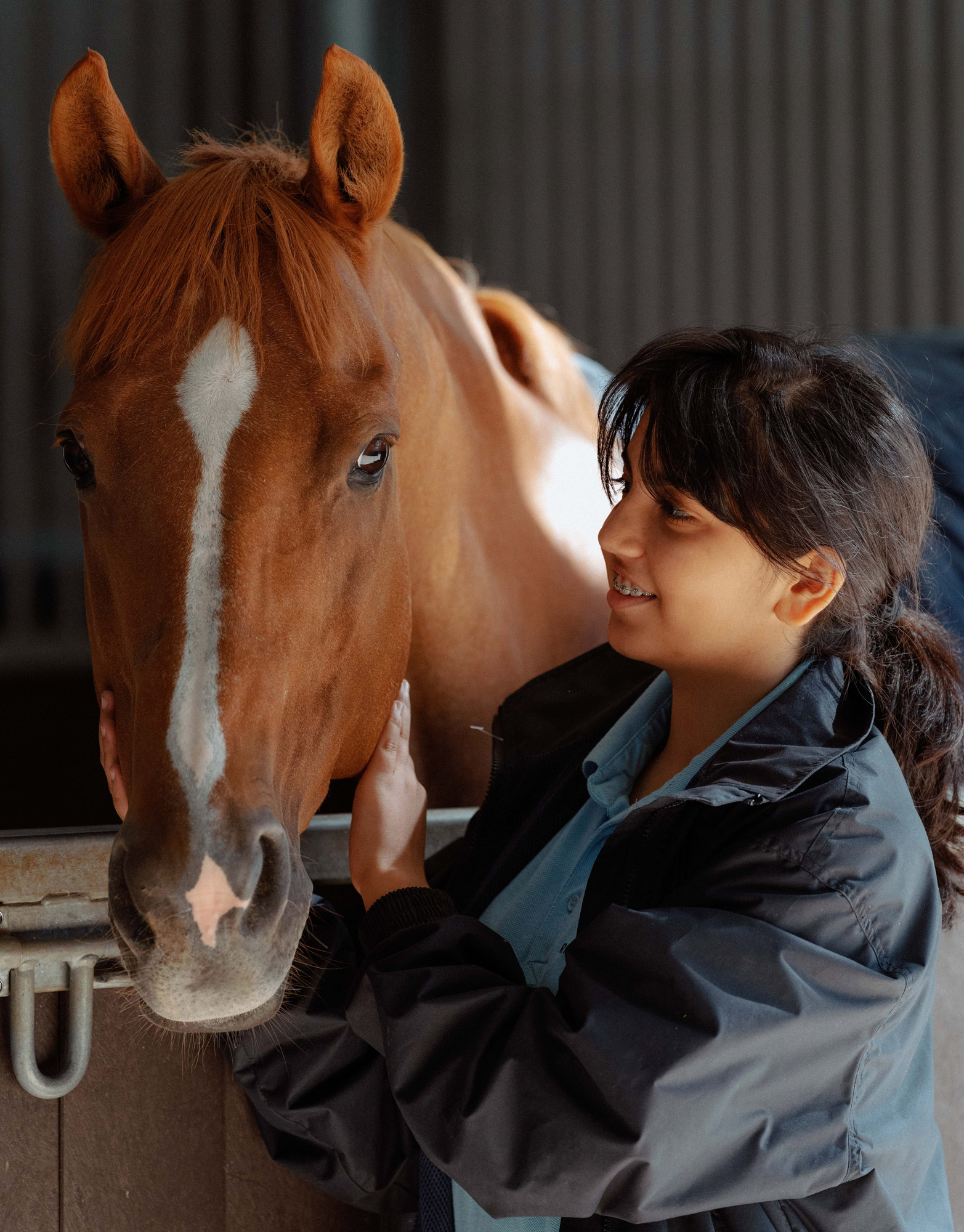
Glorious: How did you get into horses and horse riding? Did you grow up ‘horsey’? What is it about horses that you love so much?
Naomi Lawson: My dad was a jump jockey who then became an assistant trainer at Coombelands during the Dancing Brave years and his side of the family still train from there. It was a very horsey and privileged background but I had a slight rebellion and moved away from the sport in my twenties before working as Director of Communications at Great British Racing. I love that as a rule (and there have been a couple of exceptions) you always feel better for having spent time with horses. The fact that they’ve all got unique characters and when you’re spending time with them you’re in the present, and not worrying about anything else in your life at that moment. The therapeutic care horses provide is incredible and it’s one of the reasons why opening up access to them to everyone is so important.
Glorious: We loved the Riding A Dream documentary, how did it come about? Did you see a huge uprise in interested candidates?
Naomi Lawson: ITV Racing presenter Oli Bell is also a patron of Ebony Horse Club and it was his idea to see whether a rider from there would take part in the Magnolia Cup. Two of his friends, Tom Bolwell and Mattia Reiniger, are documentary filmmakers, so they made the film with funding from the Racing Foundation, Great British Racing and Goodwood racecourse. The idea was to just film Khadijah on her journey – none of us expected the fairytale and for her to win. The Academy didn’t exist at that point, but we set it up afterwards as a legacy to Khadijah’s achievements and it’s remarkable the number of applications we receive each year who continue to name her as their biggest inspiration.
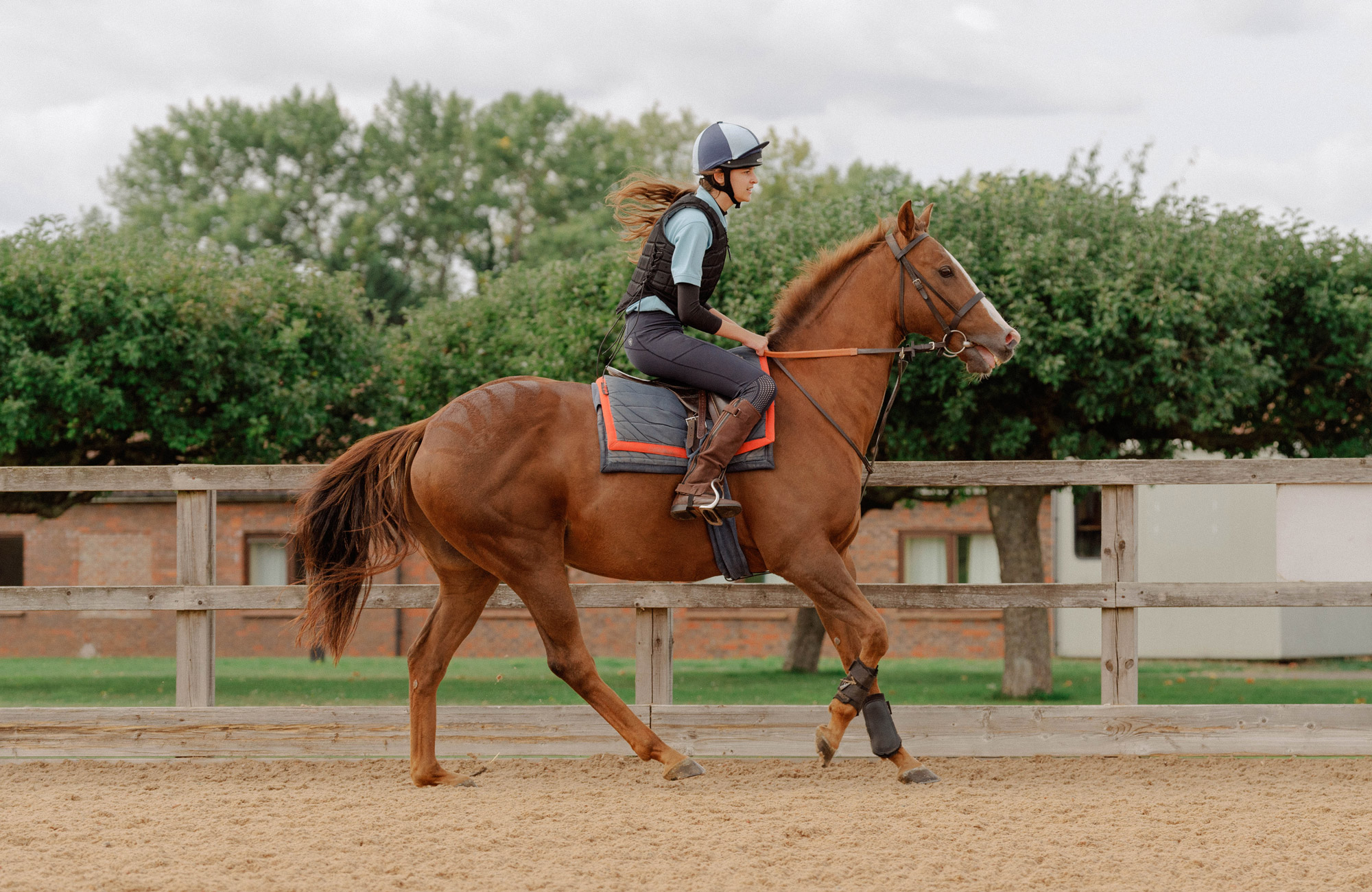
Glorious: What do you look for / what is required to enter the programme?
Naomi Lawson: Attitude is the most important thing. You’ve got to be prepared to work hard with a willingness to give everything your best shot. We start at 7am on the residential courses with morning stables to try to replicate what it is like in a racing yard. We can teach anyone to ride from scratch but if your heart’s not in it, then it’s of course a lot harder!
Glorious: .If you could take a group of influential women to the races for a day, who would you invite and why?
Naomi Lawson: Alex Scott who I think is an amazing broadcaster and role model; Woman’s Hours’ Emma Barnett; BBC reporter Miriam Wlaker-Khan who has covered a lot of the Academy’s stories and Michelle Obama (of course).
Glorious: What’s next for the Academy?
Naomi Lawson: We hope that the Academy will continue to grow so that we are able to support as many young people from diverse ethnic communities as possible. We’ve recently introduced taster days for schools and charities which have proved really populat and as a result, some of the young people who had never ridden before have gone onto our more intensive courses – so they are proving great at identifying otherwise hidden talent. There is also a wider industry strategy taking place in racing at the moment and it’s important we’re involved in that so that we can help influence greater diversity and inclusion across the sport.
Glorious: How can our readers support and where can we find out more information?
Naomie Lawson: Email me at naomi@ridingadreamacademy.com, head to our website www.ridingadreamacademy.com where you can sign up for our newsletter or follow us on socials: Insta: @ridingadreamacademy or Twitter @Riding_A_Dream
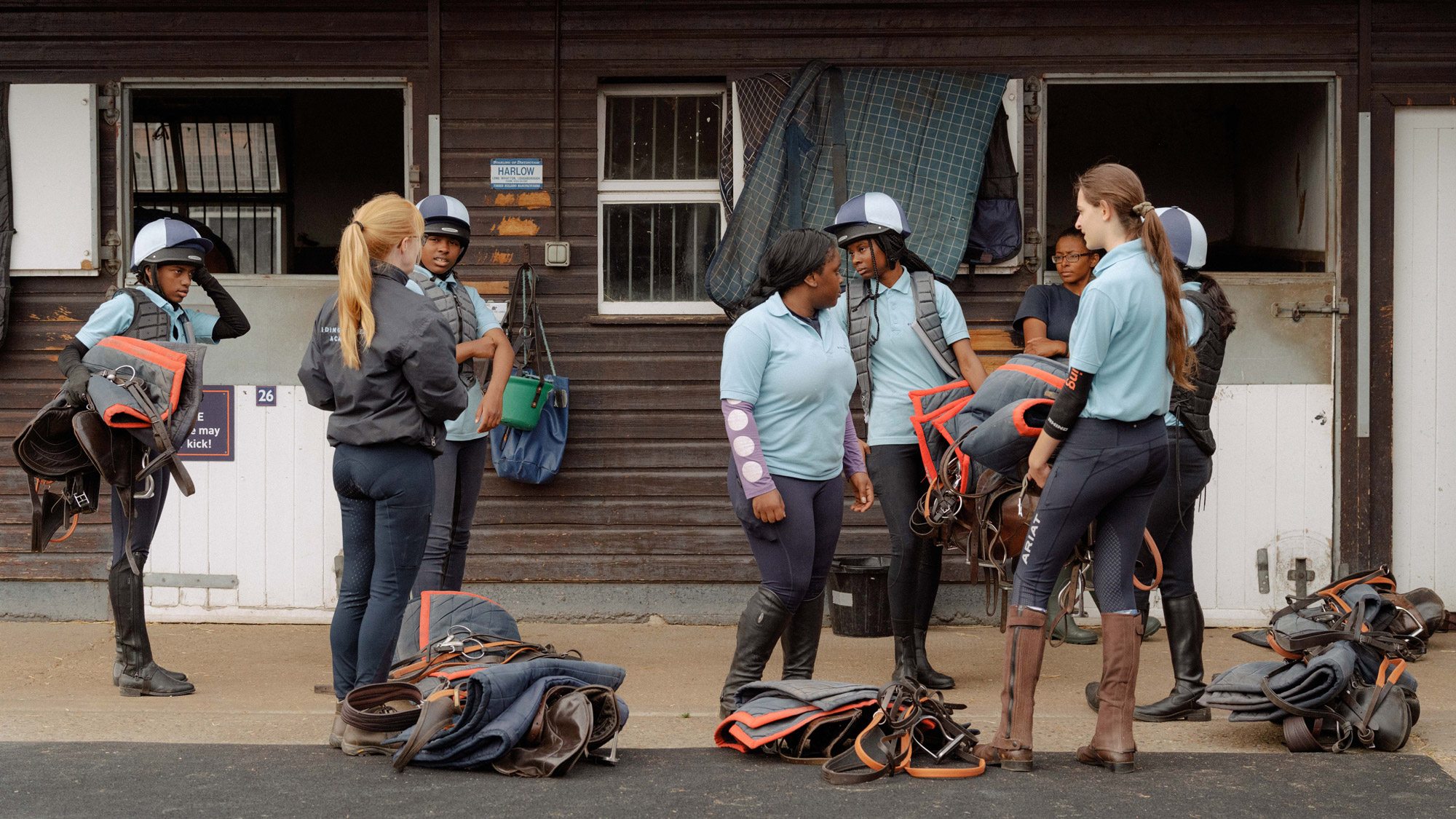
Editorial Design by this is root, Photography by Alice Gough
